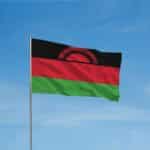This year, Shrove Monday will be observed on February 20. The day, also known as “Collop Monday”, “Rose Monday”, “Merry Monday”, or “Hall Monday,” is an annual Christian holiday that is observed on the Monday before Ash Wednesday. The day is celebrated with carnival parades and floats that often satirize a culture’s habits or people, national and international public figures, recent events, and taboo subjects. Marching bands and local associations are also a part of these parades. The parades are visited by spectators and some may even receive media coverage. Spectators at the parade also dress as mythical or political figures, thus adding to the merriment of the day.
History of Shrove Monday
The origins of Shrove Monday are not entirely clear. However, the traditions around the carnival and parades may have begun over two thousand years ago by the Romans. In these carnivals, it wasn’t uncommon to see the servants and slaves playing the role of masters and dressing up like them. Fast forward to today, the tradition continues with people dressing up as local and international public figures while satirizing them.Shrove Monday also signals the end of the period before ‘Lent’ for many Christians. Until Easter, Christians observe a period called Lent. Some might even choose to fast or spend more time praying during the Shrovetide week. Several Christians give up meat, sugar, eggs, and alcohol during this period. The fast or abstinence is broken by consuming these food products during the carnivals.The day is sometimes called “Collopy Monday” in the U.K. owing to a traditional meal eaten for breakfast on the day — collops of bacon eaten with an egg. Whereas in east Cornwall, Shrove Monday is known as “Paisen Monday” or “Peasen Monday”, in honor of the pea soup that is eaten on this day. Shrove Monday is a popular holiday in numerous countries. It is part of the Carnival calendar in Greece, and in many Caribbean countries, it is known as “Carnival Monday” — thus starting the Carnival season. In the Americas, Shrove Monday is more popular as “Luni Gras” or “Fat Monday”. It appears that almost every culture has its version of Shrove Monday!
Shrove Monday timeline
Henry II starts the trend of an annual traditional football match that is different from modern-day football.
Trinidad and Tobago Carnivals first celebrate Shrove Monday in the Caribbean.
Carnival celebrations to mark Shrove Monday begins in Mississippi, U.S.
Mississippi Gulf Coast Mardi Gras is renamed Lundi Gras or Fat Monday.
Shrove Monday FAQs
What does Shrove Monday celebrate?
Shrove Monday is celebrated before Ash Wednesday and signals people to start preparing for the season of Lent.
Is Shrove Monday a holiday in Germany?
Shrove Monday is not a public holiday in Germany.
Where is Shrove Monday celebrated?
Shrove Monday is celebrated in Europe, the Americas, and even the Caribbeans.
How to Observe Shrove Monday
-
Feast on collop and eggs
Start Shrove Monday by feasting on the traditional meal of collop and eggs. A collop of bacon may be eaten with beans and vegetables to add more flavor to the dish. This is the best way to start the celebrations!
-
Attend a carnival
Find out if there are any carnivals on Shrove Monday located close to your area. You may even dress up in costumes or participate in the festivities as a spectator. Shrove Monday carnivals are a stunning sight.
-
Start preparing for Lent
After you are done celebrating Shrove Monday, you could start preparing for Lent. Devout Christians prepare for Lent by confessing, fasting, giving up certain food items, and praying more.
5 Intriguing Facts About Shrove Monday
-
It’s always on a Monday
More precisely, Shrove Monday is always celebrated 48 days before Easter.
-
The name comes from the word ‘shriving’
The old word ‘Shriving’ means to listen to someone’s sins and forgive them.
-
Carnivals and Shrove Mondays are synonymous
Some of the world’s largest and most famous carnival celebrations take place in New Orleans, Rio de Janeiro, and Venice.
-
‘Collop’ doesn’t always mean bacon
Any fatty piece of meat may be referred to as ‘collop’ and consumed on Shrove Monday.
-
It also marks the start of spring
Shrove Monday marks the beginning of Spring in the Greek Orthodox calendar.
Why Shrove Monday is Important
-
Celebration of age-old traditions
Shrove Monday is celebrated with The Royal Shrovetide Football Match dating back to the 12th Century. Ancient traditions like these make Shrove Monday an important historical observation while keeping old traditions alive.
-
A time of merry-making
Shrove Monday is celebrated with carnivals, parades, and floats. People dress up, indulge in satire, and drink and eat to celebrate. Shrove Monday is a perfect holiday to spend some fun times with your loved ones.
-
A celebration of rare foods
Shrove Monday, in a way, also celebrates foods that are increasingly becoming rare. Also known as Collop Monday and Peasen Monday, this is a good opportunity to celebrate collop bacon and eggs, and pea soup.
Shrove Monday dates
| Year | Date | Day |
|---|---|---|
| 2022 | February 20 | Sunday |
| 2023 | February 20 | Monday |
| 2024 | February 12 | Monday |
| 2025 | March 3 | Monday |
| 2026 | February 16 | Monday |






















































